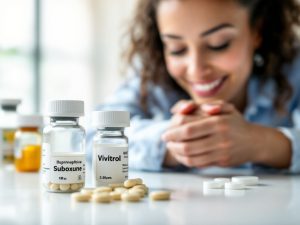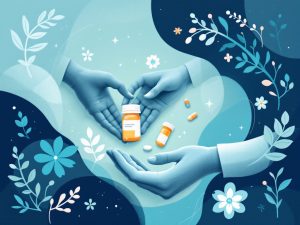Discover equine therapy
When you first hear about “equine therapy addiction,” you might wonder how horses can play a role in supporting recovery from substance use disorders. Equine therapy, also called equine-assisted therapy, brings you face to face with these intuitive animals in structured activities that foster emotional growth and healing. As a result, this approach can complement more traditional outpatient strategies, giving you or a loved one an additional tool designed to improve self-awareness and confidence.
Horses have a special ability to sense and reflect human emotions. Their keen sensitivity allows them to mirror your mood, offering an honest, non-judgmental response to how you’re feeling. Because of this, equine therapy can help you develop healthier coping strategies while building a genuine connection. Studies from sources like Samba Recovery emphasize that many individuals who engage in equine therapy not only demonstrate improved mental health but also experience gains in trust, empathy, and social skills. Ultimately, equine therapy underscores the powerful relationship between emotional regulation and lasting recovery.
Defining equine therapy for addiction
Equine therapy is more than riding lessons or simply spending time in a barn. It is a structured therapeutic intervention involving either a licensed mental health provider or a trained equine specialist who guides you through hands-on exercises. Activities such as grooming, feeding, or walking a horse push you to learn new behaviors, improve communication, and practice safe boundary-setting.
Some approaches you may encounter include:
- Equine-Assisted Learning (EAL): Focuses on skill-building such as communication, emotional regulation, and problem-solving.
- Equine-Assisted Psychotherapy (EAP): Integrates mental health counseling into horse-related tasks, addressing deeper emotional or behavioral issues that may contribute to substance use.
These specific approaches give you a clearer perspective of your behaviors and emotions. For instance, if you display frustration or fear, the horse often reacts—highlighting how a shift in your own posture or mindset can generate notable change in the animal’s response. This immediate feedback loop builds your capacity for personal insight and self-awareness.
Link between horses and healing
Unlike humans, horses communicate without judgment. Their reactions are direct reflections of your energy and intentions. This element of unconditional responsiveness can help you see how your own emotional states influence your surroundings—an essential awareness in addiction recovery.
Research cited by Olympic Behavioral Health found that participants in equine-assisted therapy for addiction report up to a 50% reduction in anxiety and depressive symptoms. Many attribute these results to the simple yet transformative act of caring for an animal that responds authentically to your efforts.
Because of the trust factor, interacting with horses allows you to practice healthy communication, grow your sense of accountability, and boost your self-worth in ways that align with a sustainable path to wellness.
Explore how it works
Equine therapy has steadily gained recognition as a valid, research-backed component of addiction treatment. However, you may still wonder exactly how it fits into a structured recovery path. Equine therapy works in tandem with your overall care plan by targeting emotional, behavioral, and social factors that feed into substance use.
Core principles in equine therapy
-
Non-verbal communication: Horses rely on non-verbal cues—reading your body language and tone of voice. When you learn to keep a calm posture or speak gently, you’ll notice the horse becomes more receptive to your commands.
-
Emotional mirroring: Horses are tuned into your emotional states. If you approach them with fear or agitation, they often pull away or act apprehensively. Once you shift to calm confidence, their demeanor usually softens, reflecting your emotional growth in the moment.
-
Responsibility in caregiving: Activities like grooming or feeding demand consistency and empathy, highlighting your ability to care for another being. This sense of responsibility can bolster your commitment to self-care, an essential component of addiction recovery.
These core principles are normally woven into structured sessions. A mental health professional collaborates with an equine specialist to guide you, ensuring that each activity genuinely aligns with treatment goals.
Goals of equine-assisted sessions
Equine therapy sessions can help you:
- Identify emotional triggers that lead to harmful behaviors
- Increase self-awareness regarding destructive patterns
- Practice healthy communication and relationship skills
- Build trust, both in yourself and in others
- Develop strategies for stress tolerance and emotional regulation
For instance, if you or a loved one are also managing withdrawal symptoms or persistent cravings, you might integrate equine therapy with specialized opioid addiction treatment or other substance-specific care. In this way, equine therapy complements broader treatment goals by providing a steady platform to practice accountability and self-discovery.
Gain key benefits
The advantages of equine therapy extend beyond simply spending time with a horse. You can experience measurable emotional, psychological, and social progress, which can strengthen your long-term recovery plan.
Emotional growth and regulation
When trying to overcome addiction, emotional regulation is often a significant hurdle. You might feel overwhelming anger or sadness, leading to destructive impulses. Horses encourage you to stay centered and calm because they respond best to gentle direction.
- Self-awareness: Horses quickly react to shifts in your mood, prompting you to assess and adjust your emotions in real time.
- Emotional control: By calming yourself to soothe a nervous or restless horse, you build skills that carry over into everyday life, including stressful moments at work or home.
- Empathy and compassion: Recognizing how your attitude impacts the horse helps you develop a more compassionate outlook toward yourself and others.
In research published by Gladstones Clinic, equine therapy reduced depressive symptoms by providing a regular, gentle activity that fosters nurturing. The act of caring for a horse encourages you to maintain a routine while developing empathy, which is crucial in rebuilding relationships that may have been frayed by substance use.
Communication and boundaries
Healthy communication and boundary-setting are vital in addiction recovery. You might have experienced moments in which your needs or limits were not clearly defined, both in personal and professional relationships. Equine therapy can illustrate the power of clear communication:
- Establish boundaries: To lead a horse effectively, you must keep a safe distance and set consistent guidelines, reflecting the boundaries you learn to establish in personal relationships.
- Hone communication: Horses are sensitive to your voice, gestures, and overall demeanor, teaching you how to present clear, consistent signals.
- Improve assertiveness: Through guided exercises, you practice using calm yet firm language—both verbal and non-verbal—which can translate into more respectful interactions with family or friends.
Because these moments of communication happen instantaneously, many participants describe a sense of “light-bulb” realizations, identifying how changing one small behavior can lead to completely different results in their environment.
Accountability and self-esteem
Another powerful component of equine therapy is the responsibility that comes with caring for an animal. Responsibilities can include:
- Feeding schedules
- Grooming practices
- Walking and exercising
- Ensuring a safe environment
By taking charge of these tasks, you gain not only a sense of accomplishment but also a clearer understanding of how your actions (or inactions) directly affect another living being. This heightened sense of accountability often spills over into broader habits, such as showing up for therapy on time, avoiding relapse triggers, or supporting peers in group sessions.
In fact, Olympic Behavioral Health reports that up to 75% of participants involved in equine therapy observe significant improvement in emotional regulation and coping strategies. Although these figures reflect a range of factors, the fundamental lesson is consistent: equine therapy helps bolster your self-esteem by introducing manageable challenges.
Combine with other care
When it comes to recovery, there is no universal solution. You might see the best results by integrating equine therapy with various evidence-based approaches, creating a comprehensive program that addresses the physical, emotional, and psychological facets of addiction.
Evidence-based therapies
A well-rounded recovery plan often includes proven methods such as:
- CBT for addiction: Focuses on identifying and restructuring negative thought patterns.
- Motivational interviewing: Helps you build internal motivation to change harmful behaviors.
- Trauma informed addiction therapy: Processes underlying trauma that may fuel substance use.
- Group therapy addiction: Encourages healthy peer support and shared accountability.
In many cases, equine therapy reinforces these techniques by giving you concrete, real-time ways to practice lessons learned in individual or group therapy. For instance, if you’re nurturing stronger communication skills through CBT sessions, you can apply these skills during an equine activity that requires you to guide a horse calmly around an obstacle course.
Holistic approach for lasting recovery
Holistic care recognizes that addiction can disrupt all areas of your well-being—your mind, body, and social relationships. Because equine therapy nurtures emotional awareness, empathy, and responsibility, it helps address the mind-body connection. You’re actively engaging in physical activities like grooming or walking while simultaneously learning about your emotions and behaviors.
Additionally, a holistic program might include:
- Nutritional support: Encouraging a balanced diet to enhance mood and overall health
- Mindfulness practices: Creating time for breathing exercises or short meditation sessions while interacting with horses
- Expressive therapy addiction: Integrating art or music therapy to channel creativity and process deeper feelings
By pairing equine therapy with these complementary methods, you can form a strong foundation for change that feels tangible, interconnected, and deeply motivating.
Choose Epic Health Partners
You might be asking why you or a loved one should choose Epic Health Partners for all your outpatient behavioral health, psychiatric, and substance use care needs. Our goal is to create safe, supportive environments where you can explore new forms of healing while benefiting from experience-driven, evidence-based techniques. Equine therapy can be an integral component of that environment, thanks to our emphasis on holistic recovery solutions.
Our supportive environment
At Epic Health Partners, you will find a caring and empathetic space specifically designed to address your struggles and celebrate your progress. Our professionals understand the unique challenges you face, whether you’re battling opioid dependence, alcohol use disorder, or co-occurring mental health issues. By offering outpatient programs, we aim to make treatment as accessible and flexible as possible, ensuring that you maintain important commitments at home or work.
We know that emotional safety is essential to your success. When you combine equine therapy with our other services, you receive robust support at each step of the journey:
- Clinical guidance each time you attend equine sessions
- Regular check-ins to track your emotional and behavioral responses
- Customized modifications to your treatment plan as you progress
If you have experienced trauma or want to dive deeper into the origins of your substance use, we also recommend exploring our heroin addiction treatment or fentanyl addiction treatment programs in combination with equine therapy. These combined approaches address the complexities of opioid dependency while leveraging the empathy-building experiences equine therapy provides.
Individualized plans for you
No two people face exactly the same challenges in recovery. Our approach emphasizes individualized care that considers your background, emotional wellbeing, substance use history, and lifestyle. You may benefit from an extended outpatient plan, or you may find early success in short-term sessions combined with ongoing therapy. Whichever route suits you best, you can rely on a collaboration of professionals who tailor each aspect of your recovery plan.
We also provide:
- Scheduling flexibility: So you can balance treatment with daily life
- Evidence-based interventions: Therefore, you can trust in proven therapies like dbt for addiction or mindfulness training
- A comprehensive care network: If you need specialized help, we can incorporate relevant services like prescription opioid treatment or alcohol use disorder treatment
Your path toward recovery should build on what works for you. By weaving equine therapy into a well-structured blend of counseling, case management, and other therapy options, you gain the support necessary for lasting recovery.
Common equine therapy myths
While equine therapy has received more attention, you may still be hesitant about trying it. Let’s address a few myths that sometimes hold people back from this remarkable approach.
Myth 1: Equine therapy is only about riding horses
Riding can be part of some programs, but equine therapy primarily emphasizes ground-based activities such as grooming, feeding, walking, and building trust. These processes teach you strong communication skills, accountability, and compassion. In many treatment interventions, you might not ride at all. Instead, the therapeutic value lies in how you interact and communicate with the horse in a safe and structured environment.
Myth 2: Equine therapy is too unstructured or casual
Many people imagine equine therapy as a casual pastime, but in reality, these programs follow carefully designed protocols. Licensed therapists and equine specialists monitor each session, ensuring you engage in meaningful tasks tied directly to your treatment goals. You’ll likely discuss objectives before each session and debrief afterward, drawing connections between your experiences with the horse and your broader recovery plan.
Myth 3: You have to be an animal person to benefit
Even if you have limited experience around animals, you can still benefit from equine therapy. Horses are gentle by nature. Their keen sensitivity can help you feel comfortable more quickly than you might expect. This sense of safety fosters a supportive environment where you can explore emotions without feeling judged or pressured. Putting aside preconceived notions of being an “animal person” can open the door to unexpected growth and bonding.
Frequently asked questions
How does equine therapy help with addiction?
Equine therapy addresses the emotional and psychological roots of substance use disorders. Through interactions with horses, you learn how your behavior, moods, and feelings can influence others. This awareness is vital for recognizing addictive triggers and practicing new coping strategies. By building trust and responsibility in your relationship with the horse, you lay the groundwork for more consistent, healthy relationships off the ranch as well.
Is equine therapy safe?
Yes. Equine therapy is facilitated by trained mental health professionals alongside equine experts. Safety is always a priority. You’ll receive instructions on everything from approaching a horse to grooming and leading it, ensuring your comfort and well-being. If you have concerns about physical limitations, you can discuss alternatives with your treatment team, who will adapt the program to your specific needs.
Do I need experience with horses?
You do not. In fact, many people who have never interacted with horses find equine therapy highly transformative. The sessions begin with foundational training, ensuring you learn the basics of horse care and communication. Because equine therapy focuses on emotional and behavioral insights, being a beginner can even intensify the learning experience, allowing you to grow from the ground up.
Are there coverage options for equine therapy?
Coverage often depends on your health insurance plan and the specific services included. Some insurance providers classify equine therapy under broader mental health or substance use treatment when it is facilitated by certified professionals. You should contact your insurance provider and also reach out to us at Epic Health Partners to learn about coverage and to discuss your financial options. We may guide you to insurance accepted outpatient care, helping you optimize your treatment budget.
Can I combine equine therapy with group sessions?
Absolutely. Many individuals find that balancing equine therapy with group therapy addiction offers a well-rounded view of their interpersonal skills. What you learn with the horse—like reading non-verbal cues or maintaining healthy boundaries—you can then apply in group settings, further reinforcing those lessons. The combination often accelerates emotional insight and fosters deeper accountability.
Conclusion
Equine therapy can be a powerful, empathetic way to explore the emotional sources of your addiction. By engaging in activities such as grooming, feeding, or leading a horse, you experience immediate, honest feedback that sharpens your self-awareness and communication. This kind of experiential learning works beautifully with other evidence-based treatment methods, whether it’s CBT or trauma informed addiction therapy.
At Epic Health Partners, we believe in comprehensive care for your unique challenges. That is why our tailored treatment programs precisely address your needs, recognizing that lasting recovery often requires a mixture of clinical interventions and supportive environments. Our licensed professionals help you craft an individualized plan that includes equine therapy, along with a wide range of outpatient services designed for optimal mental health, psychiatric, and substance use recovery.
You deserve a recovery process that respects the complexities of your personal story while empowering you to find hope and transformation. Equine therapy offers a safe, holistic angle—one where small changes in your actions lead to profound shifts in your emotions and relationships. Consider making it part of your journey toward a healthier, more balanced life.







